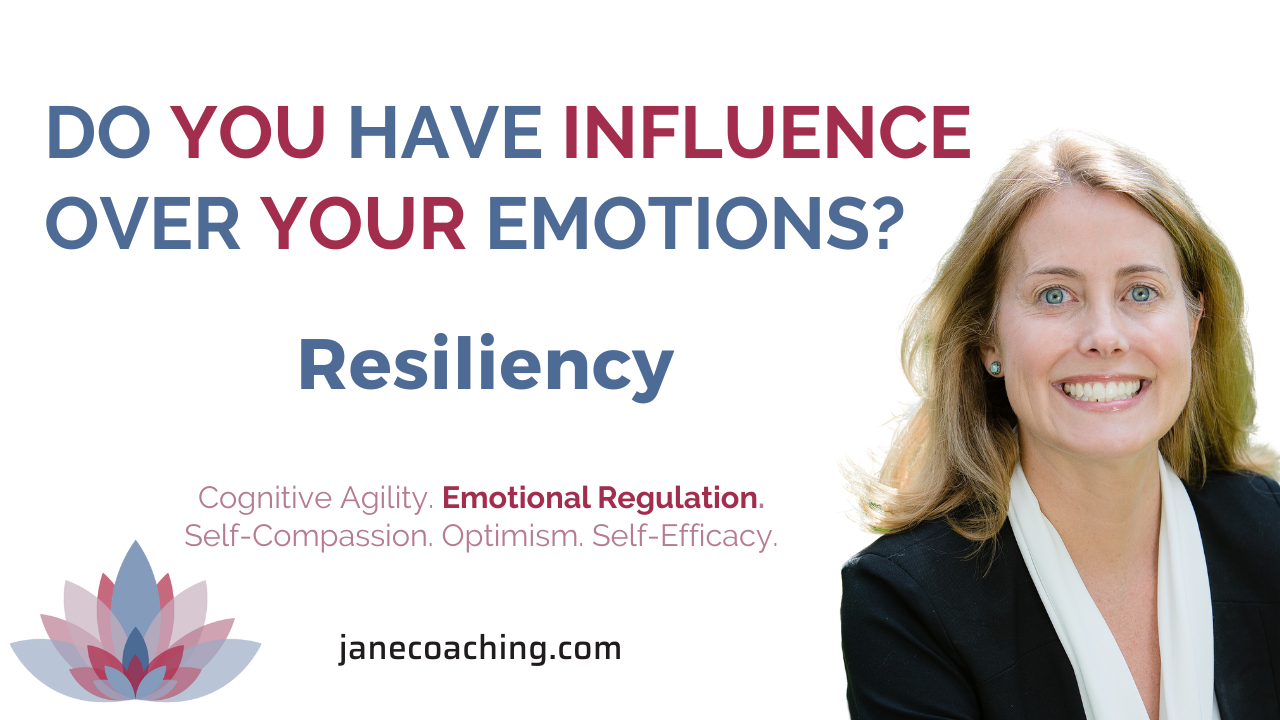Do you have influence over your emotions?
Do you know you have influence over your emotions?
Today we are talking about Emotional Regulation and how to use it so you can be resilient.
Positive Psychology defines emotional regulation as:
“[T]he process by which individuals influence which emotions they have, when they have them, and how they experience and express their feelings. Emotional regulation can be automatic or controlled, conscious or unconscious, and may have effects at one or more points in the emotion producing process.” (Gross, 1998, p. 275).
A key component of emotional regulation is your self-awareness as you are feeling an emotion. When you practice being curious about what you are feeling – or being a witness to what you are feeling – you can Pause – Process – Proceed.
For Resilient Leaders, emotional regulation is the ability to pause, notice your feelings, and the process in a constructive way, and then proceed to choose a healthy and productive response that aligns with your values. This is what I discuss in my coaching sessions on emotional regulation. Here is an example for additional clarification.



